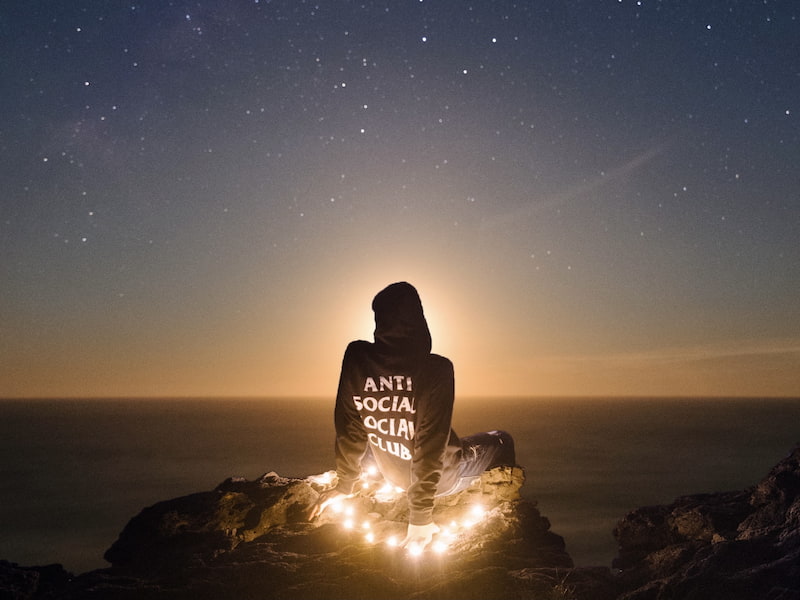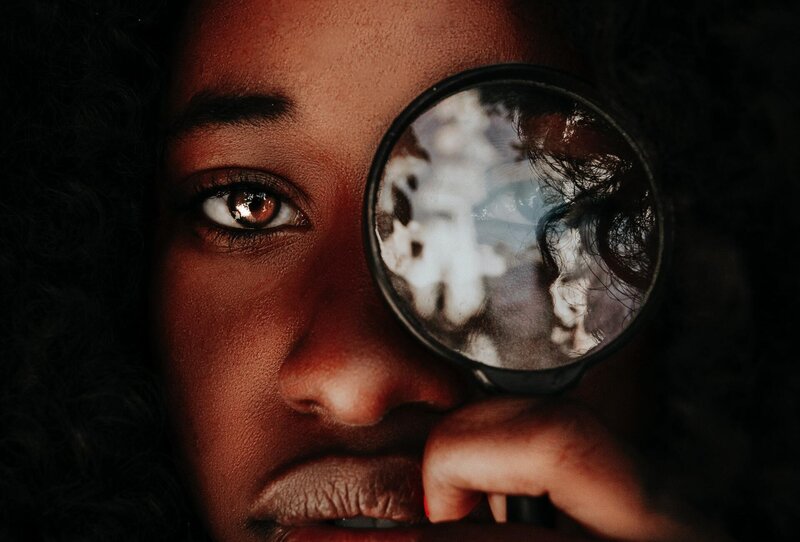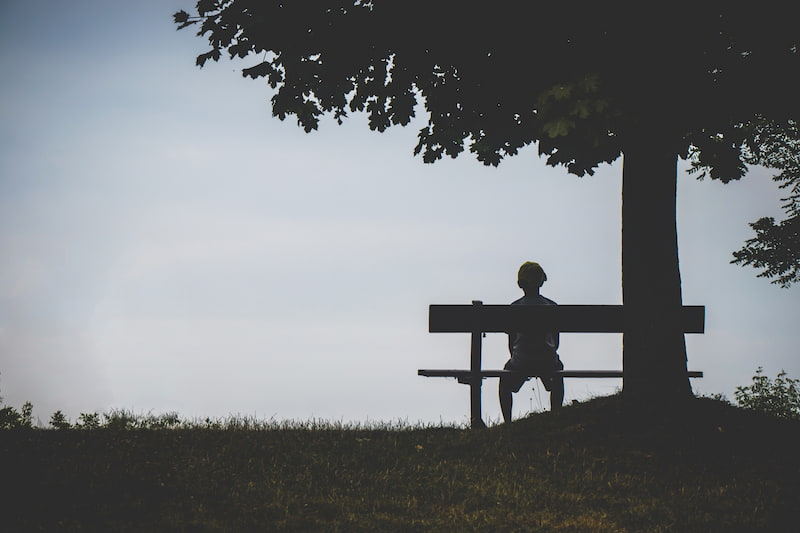Guest writer for Wake Up World
How do we find a sense of belonging in a world full of increasing loneliness due to social media, crumbling social and religious institutions that no longer meet our needs, and a society plagued by spontaneous pandemics that cause us to go into isolation?
That’s the big kahuna of questions here.
[pro_ad_display_adzone id=”110028″]
With research showing that depression, anxiety, and loneliness are on the rise (1), what can we do to take care of ourselves mentally, emotionally, and spiritually?
What Does it Mean to Have a “Sense of Belonging”?
Having an authentic sense of belonging means feeling a kinship, connectedness, and closeness to (typically) a group of people. This group might be a friendship group, a family, a spiritual or religious organization, a sports team, your town, your country, or the world in general.
When you feel a true sense of belonging, you feel comfortable simply being yourself and there is a mirrored sense of respect, acceptance, and empathy between you and those around you.
The Necessity of Being Connected

We long to belong, and belonging and caring anchors our sense of place in the universe.
– Patricia Churchland
Although this website is about helping you to be a lone wolf and walk your own unique path by listening to your Soul, that doesn’t mean that there’s no room for connection.
We all need both connectedness and aloneness. We need to learn, as a species, how to be both alone and together.
As a species, we’re primarily social creatures having evolved from the great apes who are tremendously social and have complex interpersonal relationships.
Through the ages, many sociologists, scientists, and mental health professionals have observed how crucial connection is for our wellbeing. Famous psychologist Abraham Maslow, for instance, defined love and belonging as one of the main five human needs in his well-known Hierarchy of Needs theory.
The fact is that being connected to others helps us in a multitude of ways. In the words of the Canadian Mental Health Association:
Social connection can lower anxiety and depression, help us regulate our emotions, lead to higher self-esteem and empathy, and actually improve our immune systems.
But why is staying connected and finding a sense of belonging in this modern world so.damn.hard? Why do so many of us struggle with feeling alone and disconnected?
7 Surprising Reasons Why Finding True Connection is So Hard

If there’s anyone ‘qualified’ to talk about trying to find a sense of belonging, it’s me. I can 100% understand why finding a true connection can be devastatingly hard.
I grew up in a family and religious environment in which I felt like an outsider from infancy (holla if you’re part of the black sheep of the family club!).
Throughout my adult life, after breaking free of my childhood limitations, I came across new struggles: mental illness, unresolved childhood trauma, and geographical limitations that made connecting with others super difficult (I live in one of the most isolated cities in the world, Perth).
So I’ve experienced some pretty deep loneliness, inner emptiness, and chronic disconnection from others.
Perhaps you can relate?
Were you born into a family where you couldn’t connect with anyone in any meaningful way? Maybe you have different neurochemistry/wiring that makes it hard to bridge that seemingly solid gap? Perhaps you have a chronic health condition that makes finding a sense of belonging tricky.
While many of us tend to point our fingers at the people and world around us, declaring that it’s their fault, not ours, that we can’t connect, I’d beg to differ.
It’s not your fault, it’s not their fault, it is what it is – this is just how the situation has evolved.
There’s no need for blame here because it is useless. Blame doesn’t solve our problems. Blame is wasted energy.
So instead, let’s get curious. Let’s examine some of the surprising reasons why finding true connection can be so hard. Some of the main reasons are the following:
- Unprocessed childhood trauma
- Unconscious conditioning from our capitalist society to place more value on buying and consuming rather than relating and connecting
- Believing the mental story that you’re “unworthy of love”
- Believing the mental story that you’ll “never be able to connect with others” (which dictates your behavior and turns into a self-fulfilling prophecy)
- A rigid ego or weak sense of self that makes it hard to connect with others in a way that feels safe or comfortable
- Undergoing a heavy existential crisis or existential depression that makes human interaction feel meaningless
- Experiencing an unintegrated spiritual awakening that causes you to stay stuck in a dissociated state of awareness rather than an embodied presence
Can you relate to any of the above reasons? Do any other unusual reasons for struggling to find a sense of belonging come to mind? If so, please share in the comments below.
How to Find a Sense of Belonging (TRUE BELONGING) When You’re Isolated

Building community is to the collective as spiritual practice is to the individual.
– Grace Lee Boggs
There are many types of belonging, but not all of them are equally as satisfying or Soul nourishing.
Some people, understandably desperate for connection, will do almost anything to fit in and find a sense of belonging. From joining violent gangs to engaging and joining cults to engaging in mindless gossip, we’ll go to great lengths to be liked and accepted.
You’ve probably heard the same old advice before: “go out and meet more people,” “get out of your comfort zone,” “don’t think, just do,” blah blah blah.
I’m not sure about you, but this kind of advice is not only useless (for the most part), but also probably written by someone who hasn’t experienced long-term isolation, disconnection, or loneliness.
Telling someone to “just go and do more things with people” – especially an introvert or someone neurodiverse – is kind of like saying, go and get your magic wand and create an enchilada out of thin air.
It’s not likely to happen.
Instead, as someone who has the common theme of “not belonging” running through her entire life (and runs a website actually called “lonerwolf”), here’s what I’ve found has actually helped:
-
Explore your core beliefs and core wounds

Core beliefs tend to create your core wounds. “Core” means they’re at the root or deepest layer of your being. So my advice is to figure out why you struggle so much to find a sense of belonging in this world.
These resources might help you out:
- Learn about core wounds
- Discover your core beliefs
- Use the Shadow Work Journal
Learning the “why” can help to orient your behavior, increase your self-awareness, and deepen your self-compassion.
-
Cultivate unapologetic self-love

I long, as does every human being, to be at home wherever I find myself.
– Maya Angelou
Because true belonging only happens when we present our authentic, imperfect selves to the world, our sense of belonging can never be greater than our level of self-acceptance.
– Brene Brown
If you struggle with low self-worth, you’ll find it extremely difficult – actually impossible – to connect with others in a balanced, comfortable, and enjoyable way. You’ll always be wanting, in some shape or form, their approval as a way of trying to compensate for your own lack of self-acceptance.
To cultivate unapologetic self-love, I have a few recommendations:
- Read this article on self-love and how to love yourself more
- Commit to a 10-15 minute metta (or lovingkindness) meditation every day, where you focus on only wishing yourself well – do this for at least a month. I find it helps to place a hand over my heart or stomach to ground this energy of love within my body
- Use our Self-Love Journal each day for in-depth support
-
Find a sense of belonging in the wild

As humans, we forget our primal heritage. We forget that we’re animals too.
The word “animal” comes from the Latin word animale, which means, “any sentient living creature” (1) – and that would include humans too.
We forget that other humans aren’t the only sentient beings that we can connect with in a deep and meaningful way.
Our pets, the wild critters outside, the trees, the clouds, the wind, the rain, the sunshine, the mountains, the flowers – all of these beings are sentient in their own way. All possess life force energy and a soul.
One of the simplest ways to find a sense of belonging when you’re isolated is to simply find a wild place, even somewhere in suburbia will do (like a park).
If you live in an apartment complex with no backyard or nature, gaze outside at the sky. Let yourself absorb the wildness and feel yourself as part of Mother Earth. I recommend getting a few plants for your indoor space or balcony to liven it up.
Within nature, we find our True Nature. We find a sense of peace and connectedness. We recognize that we’re part of the Whole. In fact, sitting in nature and just watching it has been a deeply significant practice for me ever since I was a child. Without this natural form of meditation, I’m sure I’d be in a much worse place.
I want to ask you this question, please answer it: What places in nature make me feel most at home?
-
Be of service: follow your passion

In the words of Mahatma Gandhi,
The best way to find yourself is to lose yourself in the service of others.
Often, we’re so busy trying to find our “people,” trying to find a sense of belonging, friendship, and connectedness, that we forget the cheesy, but true, cliche: your vibe attracts your tribe.
What you funnel your energy into sends huge ripples into the world. So why not transmit energy that matches what you enjoy doing, what you’re passionate about?
Pursuing your passions, even as a side hobby, is a wonderful way of decreasing the pain of self-preoccupation and loneliness. And chances are, you’ll eventually find and connect with those who enjoy the same thing that you do – it’s a win-win!
Read: Soul Searching: 7 Ways to Uncover Your True Path
-
Going to the root: recognize that thoughts and feelings are impersonal

Okay, so this is pretty deep here – but why shouldn’t it be?
Many of us feel a kind of existential loneliness, a kind of spiritual separation (which, in fact, most do) near others and within society.
Some of us also have a cocktail of painful social anxiety or low self-esteem or some other deep-seated neurosis that prevents true connection.
What can we do in these situations?
As someone who has struggled with all of these issues, I’ve come to find deep truths in fields such as non-duality that point out the essential nature of our suffering: the divided illusory self.
You’ve probably thought at least one of the following lines of thought before:
“It’s my fault that I’m isolated/anxious/lonely,” “There must be something wrong with me!” “Why me?” “Why am I so awkward?” “I’m different from everyone and I’ll never fit in,” “No one can ever understand me,” “Nothing has worked, I’ll never be fixed, I’ll never feel at home anywhere.”
And you probably feel at least one of the following feelings:
Shame, anger, insecurity, fear, anxiety, guilt, sadness, loneliness.
Now, tell me …
Did you sit there and program these thoughts into your mind?
Did you choose each and every one of those emotions, in their *particular* shade and intensity and timing?
Of course not.
If you could choose your thoughts and feelings, wouldn’t you always feel joyful, loved, inner peace, bliss – all the good stuff, all the time?
When you carefully trace back the origin of your thoughts and feelings, you’ll realize that they all arise spontaneously within you. You don’t choose them. They are absolutely impersonal. They are hiccups of energy suddenly erupting within you – then they leave and are replaced with something else. But your mind attaches to this energy and makes a story about it that reinforces your suffering.
If you didn’t choose any of these thoughts and feelings, how can they be you? How can they define you?
Please contemplate, meditate, and journal about the following statement:
All thoughts and feelings are impersonal. They mean nothing about “me.”
To really take the time to look into this, to absorb it, can be liberating. You’ll feel lonely at times, but that loneliness won’t mean anything to you because you’ll recognize it as a totally random, unchosen, impersonal energy that appeared and disappeared within you … like a fart in the wind. 😉
For further reading into this topic, I recommend:
Please note: non-dual reflections shouldn’t be used as a way of spiritually bypassing your suffering, but using it in conjunction with psychologically grounding and healing methods.
Final Words

Having a real sense of belonging is less about others or the state of the world, and more about our relationship with ourselves. Our conditioning, wounds, core beliefs, traumas, and mistaken belief in our thoughts, can all emphasize a sense of inner separation from others.
While it might be true that you can live in a place where there are few who share your interests or values, connecting with others isn’t necessarily about shared hobbies: real connection is more about the quality of being able to truly listen, see, and respond.
I hope the guidance in this article has inspired or supported you to find more of a home within yourself so that you can eventually say, in the words of C.S. Lewis
I have come home at last! This is my real country! I belong here. This is what I have been looking for all my life, though I never knew it till now.
What does having a sense of belonging mean to you? I’d love to hear your thoughts and feelings in the comments.
Feel free to also share this article with a friend if you think it might help or uplift them.
About the author:
Aletheia Luna is a prolific psychospiritual writer, author, and spiritual mentor whose work has touched the lives of millions worldwide. As a survivor of fundamentalist religious abuse, her mission is to help others find love, strength, and inner light in even the darkest places. She is the author of hundreds of popular articles, as well as numerous books and journals on the topics of Self-Love, Spiritual Awakening, and more. See more of her work at lonerwolf.com.
This article, How to Find a Sense of Belonging When You’re Isolated, was originally published on lonerwolf.com, reproduced with permission.
[pro_ad_display_adzone id=”110027″]








